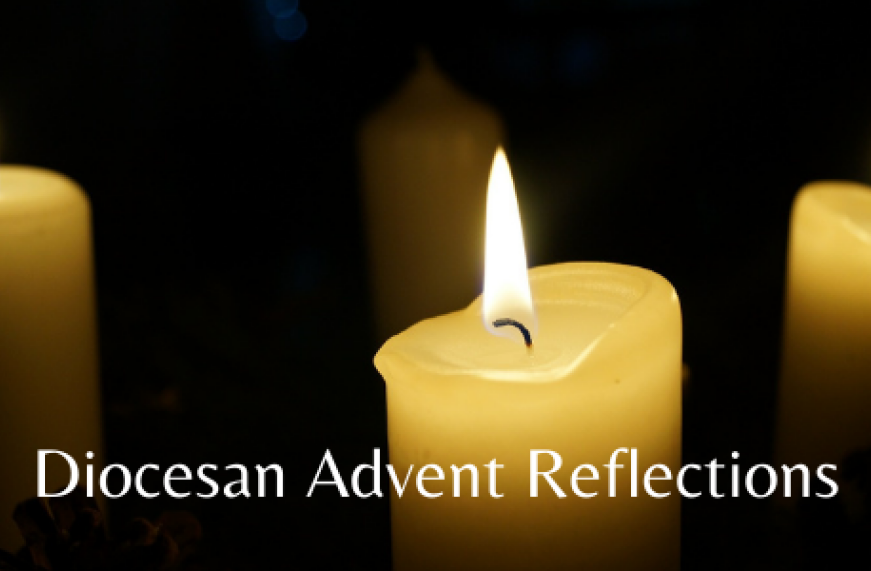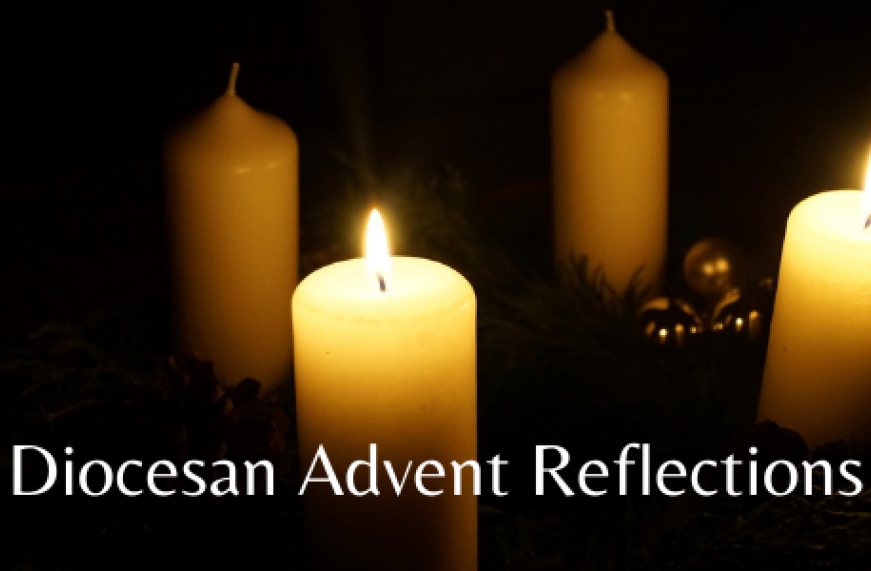Daily Advent Reflection: December 14

Third Monday of Advent
Psalms 41, 52 · 44
Isa. 8:16-9:1
2 Pet. 1:1-11
Luke 22:39-53
All shall be well, and all shall be well, and all manner of things shall be well. Revelations of Divine Love, Julian of Norwich
The gospel reading for today both comforts and disquiets me at the same time. Jesus, knowing he is being betrayed, starts to pray fervently and asks for the cup to be taken from him, sparing him from the death that is to come. What comforts me is the solidarity I feel with Christ in his humanity throughout these verses. As Christ knew betrayal, so have I. As Christ has prayed to stave off impending calamity, so have I. As Christ felt great sorrow and a troubled Spirit, I have as well (and as one who manages clinical depression, I really get this one!) Christ in his humanity has been there, done that, and knows the depth and intricacies of human emotion. My Savior has had the human experience and understands what that means for all of us. I find that comforting.
What I find disquieting is that even though Jesus prayed for deliverance, he did not receive it. Jesus was betrayed, beaten, spit upon, condemned, mocked, jeered, and crucified. Jesus went through all those things, which eventually led to the cross, and to his death. When I pray for deliverance, I want the deliverance to happen. I don’t want to think that the worst could happen to me or those that I love. I know through experience that I can pray that I may not enter trial, just as Jesus admonished the disciples to pray, and yet the trial still may come. The trial too often does come. I did not want my father’s cancer diagnosis; I prayed for him to be cured, and yet he died anyway. I do not want to be living in a global pandemic, I fear the uncontrolled spread, and yet it’s here. I can pray that my family be spared, but there is no guarantee that will happen.
Everything that Jesus went through might have led to his death, but it also led to his resurrection and the salvation of the world. The best thing, the thing that some theologians call “the culmination of all human history,” Jesus’ resurrection, came out of the worst thing, his death on the cross. My father may have died from his cancer, but I know that he is now fully healed and I am excited that someday I will see him in that heavenly kingdom in which there is no sorrow, only joy. I do not know how my family will weather the pandemic, but I can tell you that I am much less likely to take any of them for granted. In order for there to be resurrection, there has to be a cross. There is always a cross before resurrection.
Advent means coming, and our salvation is possible because Christ was incarnated. Christ’s advent to Earth in human form made possible our salvation. The promise that we proclaim during the Eucharist, “Christ has died. Christ is risen. Christ will come again,” is the promise of Christ’s second coming, his next Advent, when He will come again will create a new Jerusalem. In that new city, all will be healed, all will be just, all will be made right.
The difficult parts of the human condition are not and never will be the end of the story. The end of the story is filled with joy, peace and, praise the Lord, there will be no suffering. Humanity will see an end to violence, and justice will flow down like a fountain. Our new home will be where there is neither sighing or weeping, but life everlasting.
As you continue along your Advent journey, please know whether you are filled with joy, or have trepidation and sorrow, you have the promise of salvation because Christ’s first coming in incarnation led to His resurrection. In the promise that Christ will return again, you have the assurance that the brokenness of the world will be healed in God’s own time. There is hope because there is promise. Christ has died. Christ is risen. Christ will come again. Look for his coming, pray for it, for he will make all things well.
The Rev. Mindy Valentine Davis
St. Peter’s Episcopal Church, Fort Atkinson

